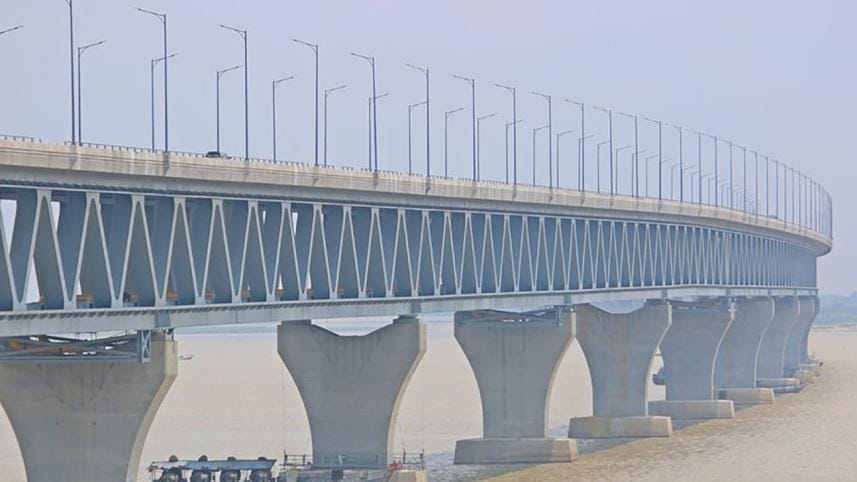Govt formulates maiden logistics policy

Bangladesh has formulated its maiden logistics policy to achieve sustainable economic growth by increasing domestic and international trade and investment capacity through the construction of a world-class technology-based, time and cost efficient, and environmentally friendly logistics system.
The Prime Minister's Office published a gazette on the National Logistic Policy on April 28.
The policy aims to ensure a reduction in delays and costs by achieving efficiency in overall logistics services, including production, storage, transportation, shipping and release, and distribution of products, within competitive cut-off times based on regional and international standards.
The policy has targeted to develop a well-coordinated cargo transport system through interconnections among waterways, railways, roadways and airways aiming at reducing time and cost in cargo transport and preventing misuse.
Two high profile committees will be formed to implement the policy.
One is a 16-member National Council for Logistics Development (NCLD) led by the prime minister, which will give the guidelines for the implementation, monitoring, review and evaluation of the policy and related investment.
This committee will have the authority to bring about any amendments necessary for the policy.
Another 31-member National Logistics Development and Coordination Committee (NLDCC) led by the principal secretary to the prime minister would monitor, review and evaluate the progress of the implementation of the workplan set by the policy.
The current logistic services in the country make use of low skills, are expensive and uncoordinated.
The World Bank Group in an analysis published in 2020 identified that the logistics costs in Bangladesh range from 4.5 percent to 48 percent, which is much higher than that in neighbouring and competing countries.
In its introduction, the new policy states that the country's export earnings can be enhanced by 19 percent through short and mid-term reforms and developments in some particular logistics sectors.
Both time and cost in domestic cargo transport can be saved through a multi-dimensional and multimodal transport and communication system.
According to a 2021-2041 Perspective Plan, 77 percent out of the total annual cargo transport in 2018 was over roadways, 16 percent over waterways, 6 percent over railways and 1 percent over others.
The target has been set to reduce that over roadways to 60 percent while increasing that over waterways to 25 percent and railways to 14 percent.
The logistics policy, however, opined that through the development of a multidimensional and multimodal transport system, 50 percent of the total domestic cargo can be transported on roadways, 28 percent over waterways, 20 percent over railways and 2 percent over airways.
A wide range of action plans has been set in the formulated policy for developing the logistics sector in line with the expected development targets eyeing for the country's transformation towards a high-income country with $300 billion in export earnings by 2041.
As per the action plans, all the airports, riverports, seaports, land ports, economic zones, industrial areas, warehouses, inland container depots (ICDs) or container freight stations and air freight stations will be connected with the national highways and railways.
The plans include connectivity between the road network and inter-state economic corridor, increase of lanes on all the national highways as well as creating separate lanes for cargo carrying vehicles and upgradation of all prevailing metre gauge railway lines into broad gauge and dual lines.
The plans also include setting up of logistics hubs at all the economic zones and export processing zones.
It chalked out plans for reducing steps regarding export and import related documentations to ensure ease of doing business.
The seaports need to be connected with all economic zones, industrial areas, warehouses, ICDs or container freight stations and air freight stations through air, river, rail and waterway connectivity, it said.
It also highlighted installation of modern cargo and container handling equipment in seaports and setting up of more ICDs equipped with road, rail and river connectivity close to the sea ports as well as formulation of a masterplan for overall infrastructure development of the sea ports.
It necessitated rationalising the port charges and fees for vessels arriving at the sea ports.
The plans also included the launch of dedicated cargo service for air cargo transport as well as setting up air cargo terminals.
The policy emphasised on encouraging private sector investment for infrastructure development of roadways, railways and seaports through public-private partnerships.
It also underscored the need for eradicating all obstacles in operation of vessels flying flags of other countries and engaged in transporting import and export cargoes.
Businesses lauded the formulation of the policy but pointed out that it was late to come about.
Bangladesh Freight Forwarders Association (BAFFA) Vice President Khairul Alam Suzan hoped for the policy to streamline logistics businesses into one uniform system.
"This will bring several benefits, including directions and the target of economic progress will be easy to reach," he said.
Masrur Reaz, chairman of the Policy Exchange of Bangladesh, said the logistics sector is a vast, complicated and multidimensional area involving many aspects including infrastructure, transportation modes, services, regulatory and border clearances.
But in Bangladesh, this sector had remained completely without any single policy framework and for that matter, the sector lagged concentrated ownership in the government, he added.
There was no single vision and framework bringing all of these together for a common goal such as economic benefit or competitiveness.
"But with the new policy, we have got a national level framework, a vision as well as a ownership within the government," Reaz said.
"This logistics policy has provided guidance and principles for private investment in all areas of logistics, including port development, railways and railway-based freights, which were never possible," he added.




 For all latest news, follow The Daily Star's Google News channel.
For all latest news, follow The Daily Star's Google News channel.
Comments